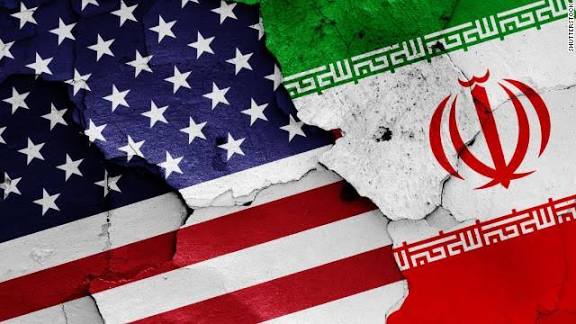Ten Explosive Global Events That Rocked 2024

STC Monitoring Desk
Here are top ten global developments that took place in 2024. Some of the events are not one-off. But have a life of action to continue into 2025 and beyond.
- Donald Trump’s Historical Political Comeback
Donald Trump’s win in the U.S. Presidential Election against Democrat Kamala Harris in 2024 will go down as the greatest political comeback in the U.S. history. His comeback owed to his unique appeal to Republican base voters, public dissatisfaction with the economy and illegal immigration, and Joe Biden’s low public approval ratings. Biden dropped out of the race in July after a disastrous debate that confirmed the doubts many had that he was fit for another four years in office. Trump’s return to White House will prove the maxim that while foreign policy seldom matters for U.S. presidential elections, U.S. presidential elections matter a lot for U.S. foreign policy. - Astounding Developments in Artificial Intelligence (AI)
Turning science fiction into science fact, the list of AI advances and their practical applications in the year 2024 was impressive.AI is being used to analyze genetic conditions, improve healthcare, create manufacturing efficiencies, and more.
The Nobel Prize Committee recognized AI’s importance when it awarded the Nobel Prize in Physics to John Hopfield and Geofrey Hinton “for foundational discoveries and inventions that enable machine learning with artificial neural networks” and half of the Nobel Prize in Chemistry to Demis Hassabis and John Jumper for developing an “AI model to solve a 50-year-old problem: predicting proteins’ complex structures.”
Most measures suggest that the United States “leads by a wide margin.” China, however, is the global leader in the raw number of AI research publications.
Some concerns came to the fore. One is limited availability of skilled workers. Another constraint is the availability of electricity and water. AI models require vast amounts of power, which generates heat that needs to be cooled. The high costs of entry into the AI space is one reason for concern that the AI revolution will widen the gap between rich and poor countries. - Mother of All Election Years
The year 2024 began as the mother of all election years. Some eighty countries representing four billion people held either national, state, or local elections. Precisely, the year gone by ended as the year of the challenger as the voters around the globe punished politicians in power.
Long dominant parties in India, Japan, South Africa, and elsewhere went into their elections hoping to strengthen their hold on power; they instead lost seats and found themselves in coalition governments. In the United Kingdom and the United States, voters sent the incumbent parties packing.
French President Emmanuel Macron’s decision to call snap parliamentary elections after rightist parties did well in the European parliamentary elections backfired and could cost him his presidency.
Germany’s ruling coalition crumbled after its constituent parties fared poorly in state elections in September. Unhappiness with the state of the economy looks to be a common thread.
But polls also show a broader disenchantment with democratic politics and a desire for strong leaders who will take on political elites. - A Collaboration Called Axis of Autocracies
The year 2024 witnessed growing cooperation between China, Russia, Iran, and North Korea. Their collaboration has been called the axis of autocracies, the axis of upheaval, and the quartet of chaos, among other names. The alignment falls far short of an alliance, and it is debatable whether “axis” is the best description. Nonetheless, ties among the four are deepening. Iran has sold Russia thousands of drones, North Korea has provided Russia with millions of artillery shells, and China has helped rebuild Russia’s defense industrial base. In summer Putin visited Pyongyang—his first visit in twenty-four years—to sign a comprehensive strategic partnership treaty. North Korea is now sending troops to fight against Ukraine. China and Russia have increased their joint military exercises, which included flying bombers into Alaska’s Air Defense Identification Zone this summer. Russia has in turn been providing highly sensitive military, space, and surveillance technology to all three countries. The four countries have conflicting interests and no shared vision of the world they hope to create. But they do agree on one thing: they want to diminish U.S. power in world affairs. - Middle East in Grip of High Intensity Violence & Fall of Bashar al-Assad
Israel continued its war in Gaza in 2024 after Hamas’s October 2023 attack on Israel. The death toll now exceeds 45,000, and northern Gaza is on the verge of famine. Israel notched numerous tactical victories, including the killing of Hamas leader and October 7 mastermind Yahya Sinwar. But its strategic objective—defeating Hamas—remained elusive.
In April, Israel bombed what Iran said was its consulate in Damascus, which led to an unprecedented Iranian missile-and-drone attack on Israel. Israel defeated the attack with U.S. and Western help. Israel responded with limited air strikes on Iran’s air defenses.
In July, Israel assassinated a senior Hamas leader while he was in Tehran attending the inauguration of a new Iranian president. Two months later, Iran retaliated with another missile attack on Israel, which was largely defeated.
Israel’s retaliatory airstrikes in late October crippled Iran’s missile production and decimated its air defenses.
In mid-September, Israel punished Hezbollah for its missile and rocket attacks against northern Israel with a clandestine operation that used exploding pagers to kill dozens of Hezbollah operatives. Two weeks later, an Israeli airstrike killed longtime Hezbollah leader Hassan Nasrallah. Israeli ground forces then invaded southern Lebanon, pushing back Hezbollah forces.
The weakening of Hamas and Hezbollah created an opening for Turkish-backed forces in Syria to topple the government of Bashar al-Assad in December, which further isolated Iran in the region. - The Climate Disaster: 2024 Recorded Hottest Year
The level of carbon dioxide in the atmosphere continues to grow, and 2024 will go down as the hottest year on record. For the first time, the average global temperature was 1.5° C hotter than during pre-industrial times, a dangerous sign given that the 2015 Paris Agreement seeks to keep the world from breaching that level permanently.
The U.S. National Oceanic and Atmospheric Administration reported that the first ten months of 2024 produced twenty-four weather-related natural disasters in the United States that inflicted at least $1 billion in damage.
Record drought has wracked northern South America, causing parts of the Amazon, the world’s largest river system, to dry up. But many of the consequences of climate change are hard to see because they involve incremental changes, like the intrusion of ocean water into freshwater drinking sources, that will become obvious only time.
Scientists made headway on a range of technologies designed to mitigate the effects of climate change and hasten the transition to a green economy. - Russia Takes the Offensive in Ukraine
In the year 2024, the momentum of the war shifted to Russia. Since July, Russian forces have pushed Ukrainian troops back along the front in eastern Ukraine. Russian casualties likely exceed 115,000 killed and 500,000 wounded.
Ukraine, with a population roughly a quarter of Russia’s, has seen 43,000 troops killed and 370,000 wounded. Kyiv attacked across its northern border in August to seize territory in Russia’s Kursk region. The move sought to force Moscow to redeploy troops away from embattled Ukrainian forces in eastern Ukraine.
Russia secured some 10,000 North Korean troops to fight in Kursk. In early December, Ukrainian intelligence assassinated a senior Russian general with a bomb planted outside his apartment building in Moscow at the risk of provoking Russian escalation.
Washington did reverse long-standing policy in November by authorizing Kyiv to use U.S.-made long-range missiles against Russia. - The Sudanese Civil War Continued Unabated
The civil war that began in Sudan in April 2023 continued unabated in 2024. The fighting pits the Sudanese Armed Forces (SAF), led by Gen. Abdel Fattah al-Burhan, against the Rapid Support Forces (RSF) militia, led by Mohamed Hamdan “Hemedti” Dagalo. The two men jointly seized power in a coup in October 2021, but eventually had a falling out.
The RSF, which grew out of the infamous Janjaweed that were responsible for the Darfur genocide two decades ago, seized control of Sudan’s capital, Khartoum, as well as much of Darfur.
In late September, the SAF launched a major offensive to retake Khartoum. They retook parts of the city but failed to dislodge RSF forces entirely.
As the fighting has ground on, the Sudanese people suffered. The exact death toll in the fighting is unknown. Some estimates put the number at 20,000 killed, with the number rising to more than 60,000 or even higher when war-related disease and starvation are included.
The conflict has displaced some eleven million people out of a total population of nearly fifty million. Mediation efforts like recent UN Security Council meeting on Sudan have produced fine speeches but little on action. Not only do the SAF and RSF each believe they will prevail, they also both have powerful external backers enabling them to keep fighting. - The Space Race Intensifies
Some of the highlights in space exploration in 2024 included: Japan landed a SLIM (Smart Lander for Investigating the Moon) on a lunar crater in January and transmitted data back to earth for three months;
China sent a mission that brought back soil samples from the far side of the moon;
NASA’s Perseverance rover found possible evidence of microbial life on Mars; a joint EU-Japan mission photographed the South pole of Mercury;
and SpaceX demonstrated a new technology for capturing returning booster rockets with “chopstick arms.” To be sure, not everything went well.
Boeing’s Starliner project delivered two astronauts to the International Space Station in June for what was supposed to be a two-month stay. Technical problems, however, will prevent them from returning until next spring. Unfortunately, space is not just home to commercial and scientific competition, but also home to renewed geopolitical competition.
In May, U.S. officials accused Russia of placing a nuclear space-based anti-satellite weapon in space.
China greatly expanded the number of military satellites it has in space. The few international agreements governing space operations do little to constrain the militarization of space. - China Shock 2.0 Seems Unstoppable
China rose from economic backwater to global powerhouse in the early 2000s on the back of exports. But its economy began sputtering when COVID hit. Rather than making necessary but painful changes to the economy, Chinese President Xi Jinping went back to the strategy that fueled China’s rise—exports. Beijing ramped up subsidies to domestic manufacturers. They are now producing more than China’s domestic market can absorb. The surplus is going overseas.
That glut of goods has some virtues—low-cost Chinese solar panels and electric vehicles would speed up the world’s transition to a greener economy. But importing countries are more worried that a second China shock will destroy their domestic industry. So they are scrambling to respond. The European Union (EU) took several steps to stop or slow the influx of Chinese imports. Brazil and India are among the countries that joined the United States in imposing new tariffs. Washington will almost certainly increase its tariffs even further in 2025. That could fuel greater trade tensions or set the stage for a negotiated solution.
(Source Council on Foreign Affairs)







